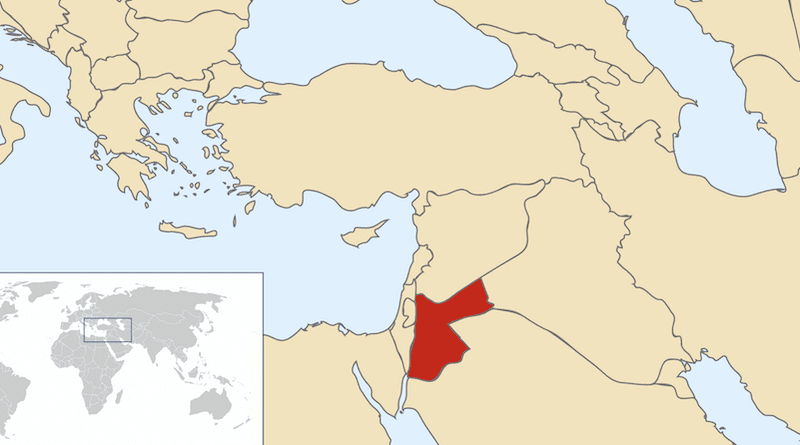Concerns Over Jordan’s Stability: The View From Riyadh – OpEd
By Arab News
By Dr. Abdulaziz Sager
Since last week, tens of thousands of people have protested at the Israeli Embassy in the Rabieh neighborhood of Amman in Jordan. Tensions have mounted as demonstrations have continued to rock the capital over the past 10 days, with authorities expressing growing concerns over a potential Hamas influence in encouraging people’s participation in these protests, after the former leader of the group’s political wing, Khaled Meshaal, incited discord among Jordanian and Palestinian citizens in Jordan.
The protests in Jordan feature slogans supporting Hamas and its Al-Qassam Brigades military wing, with speeches from their leaders urging the people of Jordan to take action being played. This is despite the Jordanian leadership making increased diplomatic efforts for an immediate ceasefire in Gaza and the delivery of humanitarian aid. Saudi Arabia has been following these developments closely.
There is a unique geographical and deeply human connection between Palestine and Jordan, making the latter’s security and stability essential for maintaining security in the Occupied Territories. However, external communications and calls have provoked the public into spreading chaos and contributing to disorder in the countries surrounding Palestine, including Jordan, Egypt and Lebanon. Some extremist Palestinian leaders, including some from Hamas, have unfortunately incited instability in Jordan, driven by misguided, dangerous and short-sighted calculations.
Jordan is particularly sensitive because it represents, according to Israeli extremist calculations, an “alternative homeland” that the forces of Israeli extremism hope to target in facilitating the goal of the displacement of Palestinians and the seizure of their land. Furthermore, Israel has an interest in a destabilized Jordan as the current Jordanian position stands firmly against its plans.
Saudi Arabia is concerned about Jordan’s security first and foremost due to its geographical location on the northern border of the Kingdom — volatility in Jordan would pose a direct threat to Saudi Arabia’s own national security. Secondly, the Kingdom wishes to maintain Jordan’s independence and integrity, while avoiding any change or shift in the leadership in Amman that may provide an opportunity for any Islamist movement to take over. Overall, there are two main threats to stability in Jordan: Israel’s ambitions encompassing its territory and the mobilization of Islamist movements such as Hamas.
Saudi Arabia supports all measures already taken and to be taken by Jordan, particularly those aimed at preserving its security and territorial sovereignty from anyone attempting to seize the state, exert pressure or influence its decisions. The Kingdom’s stance is clear: any harm to Jordanian stability or threat to its security is a red line. Riyadh will not tolerate any attempt to turn Jordan into an arena for exporting tensions or fostering chaos and instability in the Arab world under the pretext of supporting resistance in Gaza.
Saudi Arabia, as a religious, political and ethical authority exerting substantial influence over the Arab world, is dedicated to maintaining Arab national security, including in Jordan. This is not a new development. In the past, Saudi Arabia has backed Jordan and supported any steps taken to uphold its security and stability. Notably, King Salman organized a summit in 2018 that extended an economic aid package to Jordan amounting to $2.5 billion. This support highlighted Saudi Arabia’s commitment to assisting Jordan in times of crisis. King Abdullah of Jordan has repeatedly expressed gratitude for the Kingdom’s support and acknowledged its role in addressing various challenges, including those that could potentially destabilize Jordan.
In conclusion, the Kingdom’s concern for the security of Jordan amid the rise of extremist movements stems from its recognition of the intricate interplay between regional dynamics and national security. As a neighboring country, Jordan’s stability is not only vital for its citizens but also holds significant implications for the broader regional security landscape. Saudi Arabia’s proactive approach to addressing these challenges underscores its commitment to fostering peace and stability within the region.
By engaging in strategic partnerships and diplomatic initiatives and implementing robust security measures, the Kingdom endeavors to both safeguard its own interests and contribute to the collective security of the region. Saudi Arabia remains poised to navigate the complex security environment and mitigate potential threats to Jordan’s sovereignty and stability through continued vigilance, cooperation and a steadfast commitment to upholding shared values.
- Dr. Abdulaziz Sager is Chairman of the Gulf Research Center.

